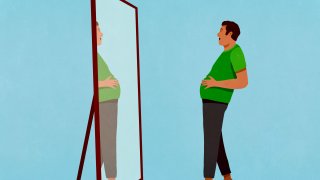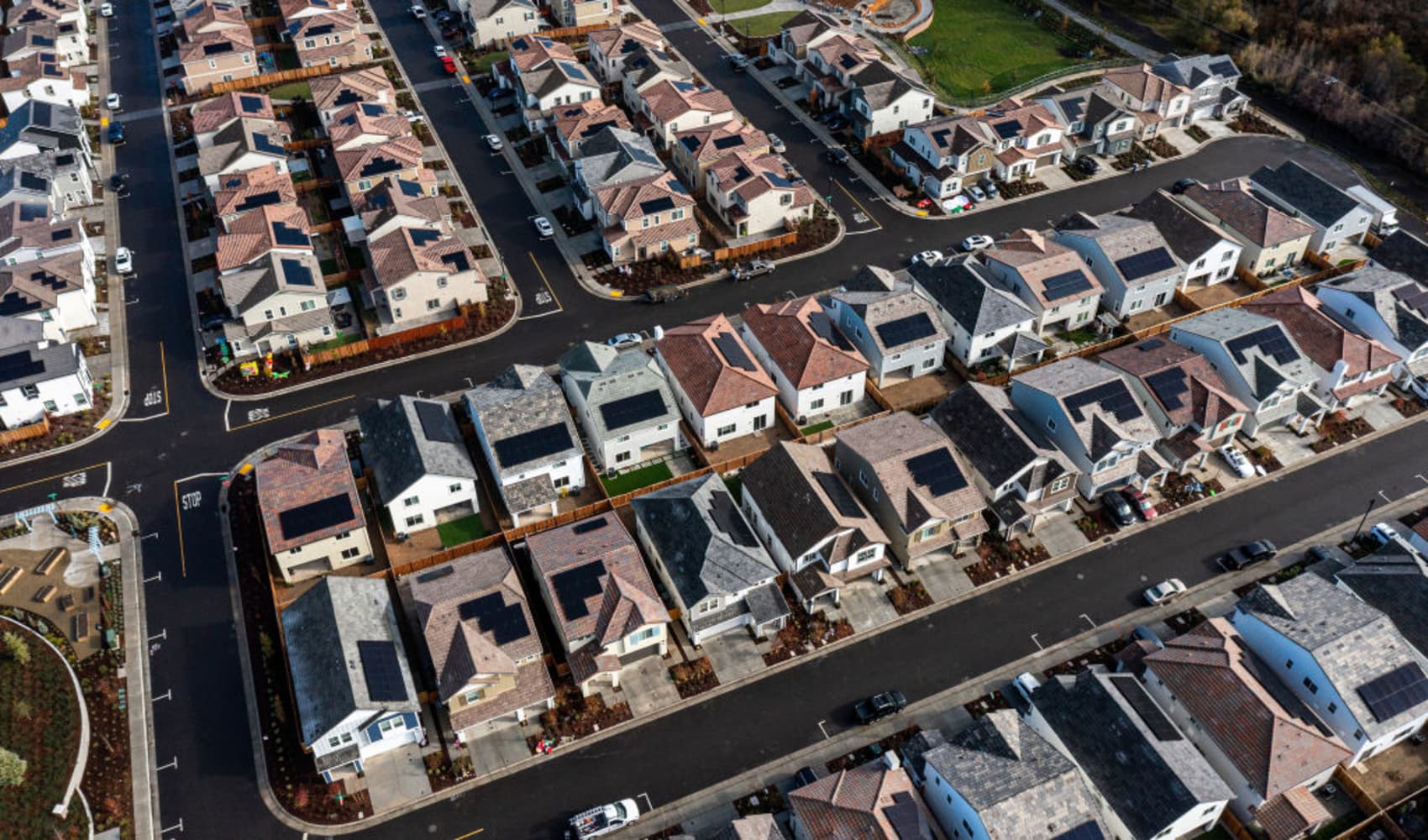
About one in 10 people experience post-meal bloating, typically in the form of gassiness or uncomfortable feelings of fullness in the abdomen.
As a gastroenterologist and associate professor of medicine at Harvard Medical School, I'm often asked: What causes bloating, and how can I make it stop?
Understanding bloating is tricky because there are so many potential factors. But one common cause is related to what we eat, particularly foods that are poorly absorbed by the gut.
If you frequently experience bloating after eating, avoid these foods to reduce stomach pain:
Get Tri-state area news and weather forecasts to your inbox. Sign up for NBC New York newsletters.
1. Sweetened foods
Fructose malabsorption occurs in about 50% of the population. This is when cells in our intestine have a hard time absorbing fructose.
A little bit of fructose is fine, but steer away from foods sweetened with high-fructose corn syrup such as:
- Candy
- Packaged bread and baked goods
- Packaged fruit
- Sweetened dairy products like yogurt
- Sauces like ketchup
- Soft drinks and juice
Instead, go for whole foods and less-sugary beverages. Carbonation can cause bloating, so opt for flat water or vegetable juices.
Money Report
2. Fructose-rich fruits
If you're sensitive to fructose, avoid (or consume only in moderation) sweet fruits like:
- Apples
- Watermelon
- Grapes
- Grapefruit
- Nectarine
- Plums
- Peaches
- Ripe bananas
- Prunes
- Raisins
To get my fruit fix, I eat blackberries, blueberries, strawberries, pineapples, mandarin oranges, lemons, or firm, slightly unripe bananas.
3. Vegetables with fructans and galactans
Even vegetables can cause bloating, especially if they have lots of fructans and galactans (carbohydrates broken down by gut bacteria, which can lead to gassiness).
These vegetables are most likely to cause bloating:
- Asparagus
- Zucchini
- Onions
- Shallots
- Leeks
- Asparagus
- Artichokes
- Beets
- Brussels sprouts
- Savoy cabbage
- Fennel
- Snow peas
Go for less sugary options like carrots, eggplant, avocados, green beans, bean sprouts, celery, cauliflower and lettuce.
4. Milk and other dairy products
Lactose intolerance affects 68% of the population and becomes even more common as we age.
Lactose-free products can be substituted for dairy products (milk or ice cream) to cut down on bloating, but not all of your favorites are off the table.
Unsweetened yogurt is tolerated by most people, as most of the lactose is broken down. And hard or aged cheeses (parmesan, brie, mozzarella, Swiss and goat cheese) are more likely to be tolerated than soft cheeses.
5. Beans
Lentils, peas and many beans contain raffinose, a type of sugar that the body has trouble breaking down. Beans are also rich in fiber, and a high intake can increase gassiness.
Black beans, navy beans, kidney beans, pinto beans and soy beans are most likely to give you gas. Go for green beans, black-eyed peas and mung beans instead.
6. Sugar substitutes
Avoid sugar alcohols (which end in -ol) such as sorbitol, mannitol, xylitol and erythritol. They cause gas and often bloating because we cannot break them down.
Stevia and monk fruit extract are healthier and less likely to cause gas or bloating.
7. Grains
Foods that contain gluten can cause bloating in people who are intolerant. If this is you, avoid wheat, barley and rye.
Eat foods that are less rough on the gut, such as rice, quinoa, oats, and other gluten-free products.
8. Some fermented foods
Fermented foods can strengthen your gut microbiome. But some may cause temporary bloating and gas. I recommend limiting your intake of kimchi, kombucha and sauerkraut for a more comfortable stomach.
More ways to reduce bloating
Aside from diet, I tell patients to do four things to further prevent bloating:
- Avoid swallowing air. Eat slowly and carefully chew small bites of food. Don't lie back while eating, and avoid talking while chewing food or drinking liquids.
- Drink plenty of flat water. Stay away from soda and carbonated drinks.
- Go on a short walk 10 to 15 minutes after eating. Research has found that this helps speed up the time it takes for food to move from the stomach into the small intestines.
- Massage your abdomen to move gas and stool. If your whole abdomen is bloated, massage from the right hip up your right side, across your upper abdomen, and down your left side to your pelvis. If only your lower abdomen is bloated, massage from your right side to your left side and down.
These tips are based on my medical experience and research. But if you have severe or chronic issues with bloating, it's best to consult your doctor.
Dr. Jacqueline Wolf, MD, is an associate professor of medicine at Harvard Medical School and a gastroenterologist at Beth Israel Deaconess Medical Center in Boston. She is the author of "A Woman's Guide to a Healthy Stomach: Taking Control of Your Digestive Health" and co-founder of Foodicine Health, a food education non-profit.
Dr. Judy Nee, MD, an assistant professor of medicine at Harvard Medical School, contributed to this article.
Don't miss:
- I’m a nutritionist from Japan, home to the world’s longest-living people—here are 5 longevity foods we eat every day
- A doctor shares the one stretch he does every day to prevent lower back pain
- A nutritionist shares the ‘most underrated’ food she eats every day to boost her energy
Want to be smarter and more successful with your money, work & life? Sign up for our new newsletter here!
Take this survey and tell us how you want to take your money and career to the next level.






